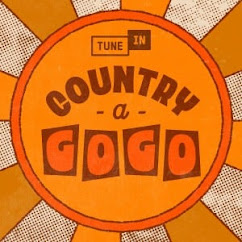According to Graham Reid, who published an interview with Dupree on his Elsewhere blog, his time as a prisoner of war was possibly more hospitable than being in the actual army.
"Black people lived good because they weren't put with the whites. We cooked for ourselves and played ball. The Japanese people were funny. They thought Americans were getting black slaves from Africa to fight for them so they didn't see they were fighting us."
And, according to John Orr: "I cooked for the [Japanese] officers, so I had to eat what they ate, so it wouldn't be poisoned. I had help and everything, a nice room, a bottle of cognac a month, cigars, cigarettes -- it was just like working in a hotel, but with no place to go."
And, according to John Orr: "I cooked for the [Japanese] officers, so I had to eat what they ate, so it wouldn't be poisoned. I had help and everything, a nice room, a bottle of cognac a month, cigars, cigarettes -- it was just like working in a hotel, but with no place to go."
Upon returning from the war, Dupree did a couple of solo dates for the Joe Davis label. To my ears the most interesting of these is "F.D.R. Blues", the first of Jack's tributes to historical figures he admired. He'd eventually toast people like Martin Luther King, Louis Armstrong, and Big Bill Broonzy in memorial songs. I don't know that much has been made about CJD's dignity in the face of racial adversity in his songs. I love how he says in this one, "He was a good man - he was a credit to our race."
Dupree's recordings for Joe Davis milk a lot of the same territory as his OKeh sides, but things get, to my own tastes, considerably more exciting when he moved to the Continental label later in '45. For one thing, he gets the first of his significant guitarist collaborators, Brownie McGhee. McGhee and Dupree would work together, with and without McGhee's other collaborator, Sonny Terry, for the next ten years.
As we have noted in the past, Dupree was not perhaps the most technically skilled pianist ever to lay his elbows down on 12 bars. He also has a limited number of song structures which get repurposed to great effect. His best records, especially his fast ones, tend to have a sympathetic string-man to help with the arrangements and to add color to his sounds. Near as I can tell, Dupree's most sympathetic guitar accompanists were McGhee, Mickey Baker (King, GNP, Decca), Larry Dale (Groove, Atlantic), and, believe it or not, Groundhog T.S. McPhee, all of whom we'll hear more from later in the month. All of these guys are on recordings that stand out from the rest of the CJD pack, not only in terms of sonic excitement, but also in the energy and focus of CJD's performance. I think the man liked him some electric guitar. Check out the way he, McGhee and bassist Count Edmonson make mincemeat out of the "Dupree Shake Dance" template on "Let's Have a Ball".
PLAY ME SOME!
In addition to adding some guitar flash, Dupree really turns up the raunch on his double entendré. His first record for Continental features "I Think You Need a Shot" on the b-side. This is the first version of "Bad Blood" on Blues from the Gutter, but it is lyrically even more lascivious than that better known (and already pretty filthy) version.
Throw your legs up on the wall!
Special shout-out to 9th Ward Jukebox, an amazingly valuable internet resource with unflaggingly great taste. Saved me a lot of uploading time.
















0 Comments:
Post a Comment